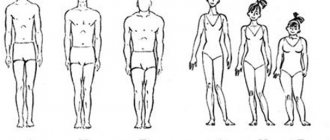Autophobia - fear of loneliness - is quite common among people of different ages, genders and social status. The object of a phobia is the individual's fear of being alone. Fear manifests itself in the fact that a person is afraid of breaking relationships with people close to him, friends or a partner, and tries in every possible way to maintain these relationships, even if they are destructive for him. Also, the fear of an autophobe can take severe forms, to the point that he cannot be alone with himself in principle, and cannot stand a single minute in isolation from other people. He can’t sleep, eat, etc. alone.
Autophobia, or fear of loneliness, also has other names: monophobia, isolophobia. This phobic disorder is quite severe, since the autophobe is physically unable to ensure the presence of other people nearby at any moment. Breaks in relationships with partners, friends, and disagreements with loved ones are also inevitable. In addition to the severe course of the disease, it is often complicated by deep depression and suicidal tendencies. It is people prone to autophobia who most often commit suicide. That is why it is so important to contact a specialist in a timely manner and prescribe comprehensive treatment. By doing this on time, you will save the life of yourself or your loved ones.
Causes of autophobia and prerequisites
The causes of autophobia can be different. In some cases, it is provoked by completely understandable factors - childhood trauma, mental characteristics, unpleasant, tragic events in life. In other cases, atypical stressors and situations become prerequisites.
The development of autophobia in childhood is most common. After all, how often do we hear the following from parents: “If you cry, I’ll leave you here alone/ I’ll give you to an orphanage/ I’ll give you to someone else’s uncle.” Such words really help prevent hysterics. But parents forget that the child is not yet able to distinguish words spoken seriously from a joke or an imaginary threat. He naively takes everything on faith. His fear that his parents will abandon him is really great, it is real. That's why he stops crying, experiencing deep fear and intense anxiety. It is in childhood that the fear of being abandoned is most often formed.
In an adult, such fear can form after a tragic break in relationships with loved ones, a partner, or after the death of someone in the family or friends.
It is not always possible to identify the true cause of the fear of loneliness. However, psychologists identify a number of the most common reasons that provoke the development of an anxiety disorder. Among them:
- Lack of parental attention: father and mother are constantly at work, the child is often left alone at home. Parents do not respond to the child’s crying or his requests to be with him.
- At the first stages of a baby’s life, parents did not raise him, did not develop personal qualities, and did not take into account the characteristics of the child’s psyche.
- The child was punished with loneliness: they locked him in an isolated room, they threatened to leave him alone on the street, in a hospital, in a store, or to send him to an orphanage.
- Communication with peers from disadvantaged families.
- Experiences during puberty, lack of understanding and support from parents or peers.
- Growing up, a person begins to fear that he will not be able to start his own family or have children.
- Excessive gullibility and naivety as character traits: some individuals easily become attached to unreliable, unworthy people.
- Departure of a partner or divorce from wife/husband, death of a relative, close friends.
- Low self-esteem, shyness, lack of communication.
- Failures in your personal life: betrayal or unexpected departure of your partner.
- Memories of past trauma associated with being alone.
- Constant workload at work, in everyday life and, as a result, a lack of informal communication with people.
There is not always only one reason: as a rule, in each patient, autophobia can be provoked by a whole complex of preconditions. In some cases, it is quite difficult to establish the exact cause of the disease.
Devote yourself to yourself3
To be afraid of loneliness means not to see all the opportunities that can and should be extracted from a free life. A lot of time is freed up, which can be spent not only on delving into oneself. This time can be devoted to self-care.
Yes, don’t deny yourself a soak in the bath, having previously dissolved rejuvenating and soothing salts and foams in it. Walk freely around the apartment wearing a black mask. Feel free to spend whatever amount you need on beauty treatments that suit you. Play sports!
Look for opportunities for self-realization and professional growth. Right now, when there are no distractions, is the time to devote yourself entirely to personal and career growth. This is an investment in the future, in the profession, in earnings. And a good therapy for unnecessary painful thoughts.
By understanding and accepting oneself, immersing oneself in the atmosphere of one’s favorite and productive activities, a person gains confidence in oneself and the future. Not afraid to move forward with his head held high. And it is precisely such a person, full of vital energy, who attracts new acquaintances to himself, like a magnet.
Symptoms of autophobia
The course of this disease can be either obvious or hidden, without pronounced symptoms. Also, the person himself often attributes the symptoms of autophobia to bad luck, incorrect upbringing, and his personal shortcomings. Sometimes they are also typical for people who do not suffer from phobias, but simply for people who are insecure, always busy with work, residents of megacities, people in adolescence.
So, let's look at the most common symptoms.
- Low self-esteem.
Lack of self-confidence, self-criticism, doubts about the correctness of one’s actions and decisions. Eternal search for approval from the outside.
- An urgent need for communication.
A person begins to overly strive for communication, expects understanding and constant interest in his person from others, and becomes obsessive. This significantly alienates the interlocutor and aggravates the fear of loneliness.
- The desire to keep a partner by any means.
Autophobes have a hard time letting go of relationships that are unproductive and destructive to them. Completely erasing personal boundaries, making any concessions, sacrificing everything, the autophobe tries to keep the person close to him just so as not to be left alone. If attempts fail, he may resort to blackmail and threaten suicide.
- Panic attacks.
Panic attacks are a typical companion to any phobic disorder. If they occur only during the period when a person is left alone with himself, we can talk about the presence of autophobia. The simplest incident can trigger an attack: a loved one does not answer calls or SMS for a long time, does not go online, or disappears for a while.
- A person needs constant confirmation of his importance.
An autophobe lacks the simple presence of close people nearby. He needs constant proof that he is needed, loved, in demand. He expects warm words, confessions, gifts, heroic and beautiful deeds for his sake. And if this doesn’t happen, he gets angry and feels unnecessary.
- Promiscuity in partners.
A typical autophobe does everything possible to avoid loneliness. He does not wait for his man, does not choose from possible options, but grabs onto the first person he meets. He compromises with himself: “Even if my partner is not the one I would like to see next to me. But now I am not in danger of loneliness.” But the problem is that such a compromise is obviously a failure. Sooner or later, the partner’s shortcomings and his failure to meet the autophobe’s requirements outweigh the fear of loneliness. And the autophobe himself breaks off relations with him, easily switching to a new person. At the same time, he repeats the mistake of not paying due attention to an objective assessment of his new partner. Sometimes an autophobe even marries an unsuitable partner just out of fear of being left alone and not having children of his own. He does not think about the fact that such a marriage is initially doomed to divorce.
Educational program on hypnosis
Ready to dial, stop. State your request clearly. Please first look at the articles on hypnosis in order to have a clear understanding of the phenomenon and perhaps dispel fears and myths:
❂ What is hypnotherapy? About small demons of the human psyche.❂ Myths and facts about hypnosis. Rules for exploiting the subconscious. ❂ What is hypnosis from a scientific point of view and without buzzwords? ❂ Social phobia: little things in life. Reviews. ❂ How to forgive a person when you cannot forgive him? ❂ About psychosomatics. Lecture at the Psychological Institute of the Russian Academy of Education. ❂ Hypnosis myths and facts. Lecture at the First Moscow State Medical University named after. I. M. Sechenov. ❂ Lecture on hypnosis at the All-Russian Professional Psychotherapeutic League. ❂ Lecture on hypnosis and hypnotherapy at the Russian State University for the Humanities. ❂ Group VK “Treatment of fears and phobias. Hypnosis training" ❂ FB group "Psychosomatics. Treatment of fears and phobias with hypnosis"
Causes of panic attacks. Psychosomatics & Hypnosis: review of the treatment of panic attacks.
Hypnosis: a review of the treatment of public speaking anxiety & social phobia. Reviews of hypnoanalysis sessions.
Article rating:
Share with friends:
Treatment of autophobia
Autophobia can be successfully treated. With the right approach, you can completely get rid of it and start a happy and fulfilling life without phobias. How to get rid of autophobia? Self-medication in this case is highly not recommended. The only non-medical measures that can be taken is to enlist the support of family and friends. The main treatment for autophobia should be carried out by a qualified psychologist or psychiatrist. Also, the following few recommendations will help get rid of autophobia in its initial stages and partially relieve the anxiety state.
- Loneliness is the norm. If you are afraid of being alone, you need to switch to this setting. It is physically impossible to be with someone 24 hours a day. It's important to be independent.
- Take your mind off heavy thoughts with the help of your favorite activity, self-realization. Find a hobby you like, do important things that you have been putting off until later.
- See a therapist regularly. Consultations with a specialist will stop the development of the disorder and help effectively relieve it.
- Don't let the daily routine completely consume you, leave time for yourself. From time to time, arrange shopping for yourself, going out with friends to restaurants, cinemas. Meet a person you haven’t seen for a long time, go to nature, sign up for fitness or handicraft courses. In short, there should be room for bright and interesting events in your life.
How to deal with autophobia using psychological work? The work of a psychologist is, first of all, based on identifying and eliminating the causes of phobia. You can get rid of autophobia with the help of hypnosis: effective hypnotechniques allow you to introduce positive attitudes into the subconscious. The patient ceases to perceive loneliness as a terrible, tragic phenomenon and begins to treat it calmly.
Group work on a phobia is also quite effective. Autophobes, under the guidance of a psychotherapist, carry out collective work on their fears, in a group they simulate stressful situations and learn to cope with them. Such activities allow patients to feel like complete and independent individuals.
In severe, advanced cases, medications are used to treat autophobia. They are necessary to relieve acute somatic symptoms and to maintain a stable emotional background in the patient. Thus, patients suffering from anxiety disorders are prescribed SSRI antidepressants, sedatives, psychostimulants, and antipsychotics.
The main thing is to ask for help in time and not to let things take their course. After undergoing comprehensive treatment, you can completely get rid of autophobia, improve your physical health, and stabilize your mental state. The quality of life in general will also improve, especially in the professional and personal spheres.
We hope that this article helped you learn more about the fear of loneliness. In it, we tried to give a brief but succinct description of the disease itself, its symptoms, and also shared useful practical recommendations with readers. Anyone can easily do them, and regularly following these tips will help significantly reduce anxiety. We help many people deal with their fears and daily stress. We will be glad if you join us by sharing this post on social networks. You can also leave your opinions and reviews in the comments below.
How to get rid of the fear of loneliness
The main treatment for fear of loneliness consists of psychotherapeutic sessions. Although sometimes the patient is prescribed drug therapy (antidepressants, sedatives) to restore the nervous system exhausted by constant anxiety.
Since the cause of fear is in the subconscious, the soul of the patient, it is impossible to cope with it with pills alone. In the treatment of phobias today, the following are successfully used: hypnosis, auto-training and neurolinguistic programming, cognitive behavioral therapy, individual and group sessions with a psychotherapist.
Important! A patient with autophobia must prepare himself for serious and long-term work with a specialist. Changing consciousness and consolidating new reactions, skills of behavior and interaction with people is a long and difficult process. However, the hope of a future full life without constant fear is clearly worth it.
Characteristics of autophobic people
Autophobia encourages an individual to engage in a certain pattern of behavior in order not to be lonely:
- There is a feeling of helplessness and danger if no one is around.
- Other people are perceived as surrogate parents.
- Lonely people are more prone to addictions: alcohol, smoking, drug addiction, with the help of which they try to cope with the problem that has arisen.
- Surrogate methods of communication via the Internet are used.
Each of us is subject to a basic instinct of community. Some need it more, others less. For some, the feeling of having one safe person nearby becomes overwhelming to all other feelings. For this, there are means that are not always better, but more accessible. The Internet is becoming this tool. And instead of developing the ability for live communication, a person walks on a safe path, but remains dependent on his fear.











